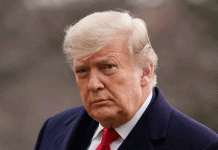The executive board of the Washington-based International Monetary Fund (IMF) said in a statement issued on Monday that Nigeria is adequately able to repay her loans following the conclusion of its 2021 article IV consultation with Nigeria.
At the onset of the COVID-19 pandemic, Nigeria received a $3.4 billion facility from the IMF in April 2020. The IMF board commended the proactive approach of Nigeria’s authorities to contain the COVID-19 pandemic and its economic impacts.
It, however, said the country’s outlook remains subject to significant risks, including from the pandemic trajectory, oil price uncertainty, and security challenges.
“Directors noted that Nigeria’s capacity to repay the Fund is adequate. They encouraged addressing data gaps to allow timely and clear assessments of reserve adequacy,” the statement reads.
The directors emphasized the need for major reforms in the fiscal, exchange rate, trade, and governance areas to lift long-term, inclusive growth.
“Directors highlighted the urgency of fiscal consolidation to create policy space and reduce debt sustainability risks. In this regard, they called for significant domestic revenue mobilization, including by further increasing the value-added tax rate, improving tax compliance, and rationalizing tax incentives,” the statement reads.
“Directors also urged the removal of untargeted fuel subsidies with compensatory measures for the poor and transparent use of saved resources. They stressed the importance of further strengthening social safety nets.
“Directors welcomed the removal of the official exchange rate and recommended further measures towards a unified and market-clearing exchange rate to help strengthen Nigeria’s external position, taking advantage of the current favorable conditions.
“They noted that exchange rate reforms should be accompanied by macroeconomic policies to contain inflation, structural reforms to improve transparency and governance, and clear communications regarding exchange rate policy.”
The directors recommended that Nigeria strengthen its monetary operational framework over the medium term — focusing on price stability and scaling back the central bank’s quasi-fiscal operations.
They also welcomed the resilience of the banking sector and the planned expiration of pandemic-related support measures.
Speaking on the newly launched eNaira, the IMF directors said that it could help foster financial inclusion and improve the delivery of social assistance, but noted the importance of closely monitoring its associated risks.
“Directors emphasized the need for bold reforms in the trade regime and agricultural sector, as well as investments, to promote diversification and job-rich growth and harness the gains from the African Continental Free Trade Agreement,” the statement adds.
“Improvement in transparency and governance are also crucial for strengthening business confidence and public trust. Directors called for stronger efforts to improve the transparency of COVID-19 emergency spending.”














